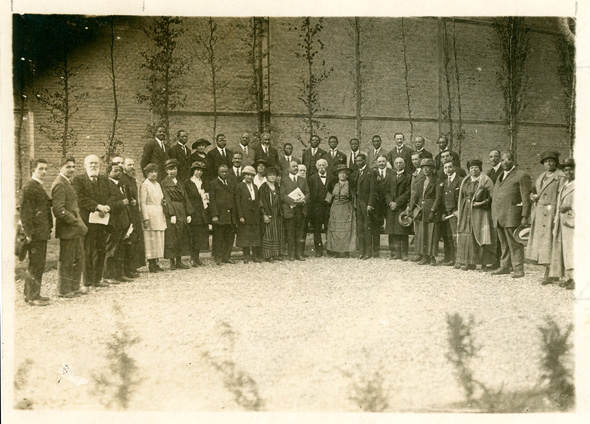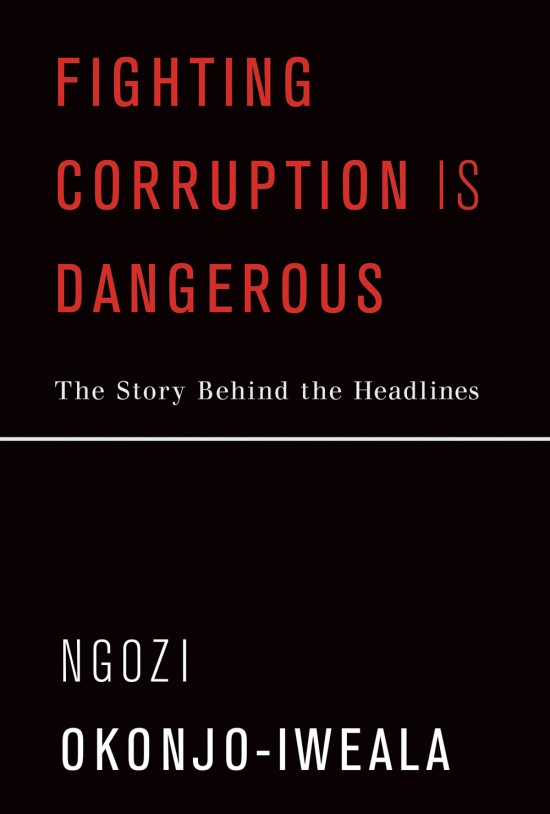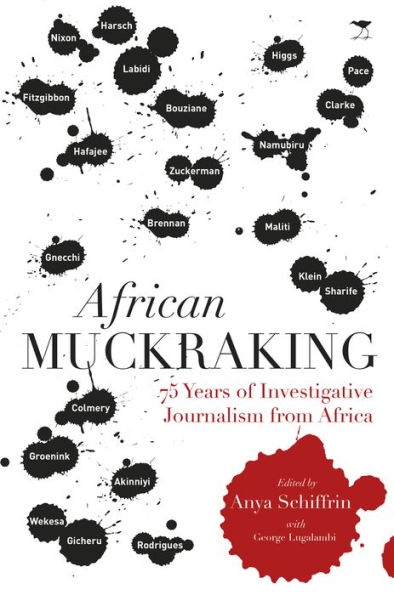Since the dawn of the last century, progressive African visionaries have proffered that to achieve economic well-being, African nations must forge a path to prosperity that is independent of Western prescription.
Yet, are the continent’s challenges so distinct as to be completely unique from those of the rest of the world?
In July 1900, the first Pan-African Conference was hosted in London’s Westminster Town Hall. In 1897, Trinidadian lawyer Henry Sylvester-Williams had founded the African Association (later the Pan-African Association) in response to the European partition of Africa that followed the 1884–85 Berlin Conference. The association sought to extol unity amongst Africans and those of African descent, particularly in the British colonies. It was the blueprint for many anti-colonialist movements throughout the 20th century.[1]
Penned by W.E.B. Du Bois, the conference’s seminal document, an address “to the Nations of the World,” asked the United States and European imperial powers how long the characteristics of race “will hereafter be made the basis of denying to over half the world the right of sharing to utmost ability the opportunities and privileges of modern civilization.”[2]
Later, its delegates successfully petitioned the British government about the unjust treatment of Africans in the Cape Colony (modern-day South Africa) and Rhodesia (modern-day Zimbabwe). Minority injustices in South Africa continued for nearly a century, but the conference succeeded in bringing them to the attention of the world.[3]
This was the first of many successes for modern Pan-Africanist ideology in the early- to mid-20th century. Its heyday came in the early post-independence years. In 1958, newly independent Ghana hosted the All-African Peoples’ Congress in Accra. The congress was a monumental success and was foundational for independence and self-determination struggles—both armed and peaceful—throughout the African continent. It also formed the basis for imminent discord. Visions of a non-aligned Africa of independent states, united politically and economically, soon fell victim to the great power politics of the Cold War.[4]
The turn of the 21st century saw a resurgence of these ideals and the birth of an African renaissance.[5] This cultural and geopolitical context led to the creation of the New Partnership for Africa’s Development (NEPAD), the topic of Professor Landry Signé’s book African Development, African Transformation: How Institutions Shape Development Strategy.[6]
Professor Signé is a rare African voice and a rapidly rising star in the neoliberal think-tank circuit. Currently a Brookings Institution and Stanford Center for African Studies fellow, his past accolades include being a World Economic Forum Young Global Leader.[7] Advance praise for the book comes from African-development heavyweights including Ngozi Okonjo-Iweala and Donald Kaberuka.
NEPAD was created in 2001 and envisioned as an ambitious multilateral development initiative that would catalyse Africa’s development. Among its chief objectives were to “bring Africa into the globalising world . . . close the existing gap between developing and developed countries . . . contribute to economic growth and . . . eradicate poverty.”[8] Its founders hoped for NEPAD to stand proud and divergent from the normative policy and strategic prescriptions of institutions like the World Bank and International Monetary Fund.
Founded by South Africa’s Thabo Mbeki, Nigeria’s Olusegun Obasanjo, Senegal’s Abdoulaye Wade, and Algeria’s Abdelaziz Bouteflika, NEPAD was an answer to the popular refrain “African solutions to African problems!” It also reconciled two competing visions for the continent’s development: the Millennium Action Plan (Anglophone) and the Omega Plan (Francophone).
Signé sets himself the enormous task of reviewing four decades of Africa’s development. He answers fundamental questions about why NEPAD emerged, how it has evolved, and what this can teach those with an interest in Africa and developing countries about new continental-development institutions and paradigms. Signé grounds understanding of NEPAD in the analytical frameworks of international relations, African studies, comparative politics, and neo-institutionalist theory. Using these “complementary rather than alternative” disciplines, Signé helps the reader understand NEPAD—and by extension Africa—as both unique and global.
Signé elegantly juxtaposes himself as both critic of and cheerleader for NEPAD. The book is at its best when questioning NEPAD’s claim to independence from the policy prescriptions of the Western world’s Washington Consensus. In one chapter, he compares text in various World Bank reports with NEPAD’s founding proclamations. The striking similarities sometimes take on an almost comical call-and-response nature.
On initiating the then-nascent African project in the years 2000–2001:
World Bank: Will Africa be able to take advantage of a window of opportunity?
NEPAD: We are convinced that an historic opportunity presents itself to end the scourge of underdevelopment that afflicts Africa.
On the ownership of NEPAD:
World Bank: Making these benefits materialise will require a ‘business plan’ conceived and owned by Africans, and supported by donors through coordinated, long term partnerships (2000)
NEPAD: The New Partnership for Africa’s Development is envisaged as a long-term vision of an African-owned and African-led development program (2001)
Despite dubious claims to indigenous origination, NEPAD has evolved with distinctly regional characteristics. Many member states actively chose to participate in NEPAD’s policy proposals across key areas despite existing in a regionally anarchic system with no penalties for disobeying its directives.
African countries have diverse reasons for cooperating under the NEPAD umbrella, but Signé concludes that their choice to do so is a significant contributor to greater harmony of values and interests on the continent. NEPAD’s official incorporation into the African Union in 2018 as the African Union Development Agency (AUDA) is testament to this integration.[9]
Signé concludes with suggestions on how best to leverage NEPAD to achieve the 2030 Sustainable Development Goals and the African Union’s Agenda 2063. Some of these include a continued focus on regional interaction projects harking back to Pan-Africanism’s heyday: the Single Air African Transport Market, the African Union Passport, and the African Continental Free Trade Area. That many of these proposals resemble those that drove successful post-war growth and integration in Europe is not accidental. In an irony surely not lost on Signé—himself a globalised African—Africa may well be Davos Man’s last stand.
Other proposals fall into the “obvious” category. These include “strengthening the financial management of the state and creating effective public administration” and “improving domestic tax collection systems.” The success of NEPAD’s stated aims relies entirely on member states’ widely varying ability and willingness to implement agreements. Thus, to further assess AUDA, it is useful to gain insight into the workings of its member states’ bureaucracies.
* * *
Credit: MIT Press
While Signé rightly ends on an optimistic note about AUDA, Dr. Ngozi Okonjo-Iweala’s Fighting Corruption Is Dangerous: The Story Behind the Headlines highlights the difficulty of putting the best-laid plans for a country’s development into practice.[10]
Okonjo-Iweala is no stranger to international development. A Harvard- and MIT-educated economist, she served as Nigeria’s first female finance minister under two presidential administrations—with Olusegun Obasanjo (2003–2006) and Goodluck Jonathan (2011–2015). She has won dozens of awards, trustee positions, and advisory appointments and was once touted as a possible World Bank president.[11]
As Africa’s largest economy, many of the continent’s hopes are tied to Nigeria’s potential development as an industrial power. Unfortunately, it faces myriad problems including armed conflict and endemic corruption. The United Nations Office on Drugs and Crime estimates that the average adult Nigerian pays at least one bribe per year to public officials. These cost the country 400 billion naira (approximately $4.6 billion USD).[12]
Corruption is not unique to Nigeria. From Brussels Mayor Yvan Mayeur’s money-laundering scandal[13] to Malaysian Prime Minister Najib Razak’s 1Malaysia Development Berhad charges,[14] leaders across the world also face moral dilemmas that surface while seeking ethical and equitable growth.[15],[16] Okonjo-Iweala left the World Bank hoping to send a message to Nigeria: corruption can be fought.
She rebalanced Nigeria’s national budget and implemented policies that sought to diversify its historically oil-based economy.[17],[18] For example, she reviewed and capped the government’s oil-subsidy program. This savvy move is estimated to have generated annual savings of $925 million (at 2015 exchange rates)[19] that could be redirected to serve some of the Nigeria’s 90 million citizens, the majority of whom live below the poverty line. Sadly, her reward for this was enmity, not support or encouragement. She candidly recounts how costly her decision to fight was throughout the memoir.[20]
This high price is most vividly illustrated in two instances: when her 83-year-old mother is kidnapped and when Okonjo-Iweala manages to disrupt a plot to physically maim her so that she cannot carry out her functions as finance minister. “You will leave [this] office in a wheelchair,” an informant tells her.[21]
Her frustration at Nigeria’s oil dependency is visible throughout the book, from anecdotes describing oil thefts in excess of $1 billion annually to the Finance Ministry’s lack of managerial oversight of the oil industry. Resistance against her attempts to reform oil industry regulations did not stop with the private sector. The Petroleum Ministry acted to constrain executive oversight rather than collaborating to foster a healthier oil sector. In a magnificent, yet subtle, act of shade-throwing, Okonjo-Iweala chooses not to refer to Diezani Alison-Madueke, the petroleum minister, once by name, preferring instead to call her “my colleague, the Minister of Petroleum” throughout the book.[22] Alison-Madueke was arrested in London in 2015, where she is currently fighting extradition for corruption charges.[23]
Nevertheless, Fighting Corruption is not a story of despair but one of awareness and unwavering dedication to her country. Dr. Okonjo-Iweala’s is the story of a steadfast leader and anti-corruption crusader who refuses to be discouraged from serving the public. Given her position as a senior policy maker in Nigeria’s government, Okonjo-Iweala’s memoir offers insight into the daily governance challenges that stymie development. This makes it a great companion to Signé’s high-level, institutional analysis. Yet, it also raises questions—did her presence help to legitimise a government that was not short of corruption scandals?[24] And to what extent was President Jonathan responsible for her difficulties in effectively exercising oversight and implementing policy?[25]
The memoir ends on a light note. Hearing that her home had been raided, following an anonymous accusation of money laundering, Dr. Okonjo-Iweala concludes, “. . . in a perverse way, [the raid] was a sign of encouragement to me that progress was being made in the fight against corruption.”[26]
* * *
Credit: Jacana Media
Much like oil, diamonds tend to feed a vicious cycle of greed and misconduct. An article in African Muckraking: 75 Years of African Investigative Journalism exposing the failure of the vaunted Kimberley Process reminds us of this. Its introduction comments incisively on the diamond industry’s proposed solution to prevent “blood diamonds” from entering the global supply chain: “ . . . extraordinarily, Africa is the only continent where expertise, ideas and knowledge about individual countries is deemed to reside in Western countries. The diagnosis of, and remedies to, Africa’s problems are cobbled together in the West, far removed from the source of the problems themselves.” [27]
These words also apply to journalistic coverage and perceptions of Africa. Edited by Anya Schiffrin and George Lugalambi, two former journalists and current professors on the topic, African Muckraking is a concerted effort to remind the world that African journalists deserve their well-earned place in the pantheon of investigative journalism.
African Muckraking follows from Schiffrin’s earlier work Global Muckraking,[28] which compiled a century and a half of campaigning and investigative journalism from the Global South—Africa, Asia, Latin America. The editors’ aims are twofold: to dispel the “sneaking assumption that good journalism simply doesn’t originate in Africa” and to remind jaded readers that “journalism really can change the world.” They excel at this and have crafted a superb, although at times incredibly depressing, testament to the power of journalism as a bulwark against unchecked power and greed.
Drawing from numerous African libraries and archives as well as the collections of the British Library, the School of Oriental and African Studies, and the Library of Congress, African Muckraking includes 41 journalistic pieces. The book draws explicit attention to the difficulty of acquiring records of African journalism, particularly pieces published before the 1990s, since there are no online archives. This fact pushes the authors to persevere and ensure, as Schiffrin tells us in her introduction, “that the world see the passion, commitment and range of coverage displayed by so many African writers.”
The usual suspects—kleptocrats, diamond smugglers, arms dealers, apartheid-era death squads, liberation movement infighters, genocidaires, Western aid workers, Biafran intellectuals, jihadists, corrupted revolutionary leaders—are all present. However, the most phenomenal passages in African Muckraking are split into three categories: articles that impacted the course of history, articles that resulted in policy changes, and articles that bring to light information generally unknown, even to those considering themselves old Africa hands. Examples include:
- Legendary South African journalist Anton Harber’s exposé in The Mail revealed the Inkatha Freedom Party to be a comprador organisation taking payments from the apartheid regime. The piece significantly weakened hardliners within the apartheid regime who attempted to position Inkatha as a counterweight to the African National Congress. The result was a complete dynamic change in negotiations for the country’s democratic transition.
- Nigerian journalist Omololu Falobi’s media advocacy for the rights of people to have access to accurate information on HIV and AIDS became a reference points for millions.
- Barry Sergeant’s Panama Papers–based investigation revealed the suspicious activities of a shady businessman with close ties to the Democratic Republic of the Congo government.
In short, African Muckraking highlights the universal, political importance of investigative journalism to advancing social change. Indeed, the original “muckrakers” were American Progressive-era journalists under attack from the presidency.[29] Burkinabe journalist Norbert Zongo, writing in 1990, pronounces: “this kind of regime considers only one thing, values only one thing; the life of the president, a life of power . . . the lesson was taught . . . I’m just passing it along to you. Learn it!” Journalists the world over have much to learn from Zongo’s advice.
* * *
Political and economic development, the fight against corruption, the importance of journalism—these are the themes brought to life by Signé, Okonjo-Iweala, and Schiffin and Lugalambi, with distinctive African renditions we have highlighted. The multitudes of the African experience, then, should be understood for what they are. Unique, yes, but extant in, and the product of, a globalised world.
African Development, African Transformation: How Institutions Shape Development Strategy by Landry Signé, Cambridge University Press, 221 pp., 2018, ISBN 978-1-108-45620-3.
Fighting Corruption Is Dangerous: The Story Behind the Headlines by Ngozi Okonjo-Iweala, MIT Press, 173 pp., 2018, ISBN 978-0-262-03801-0.
African Muckraking: 75 Years of African Investigative Journalism edited by Anya Schiffrin and George Lugalambi, Jacana Media, 384 pp., 2018, ISBN 978-1-431-42586-0.
Edited by: Chidi Agu
Photo by: Wikimedia Commons
[1] J. R. Hooker, “The Pan-African Conference 1900,” Transition, no. 46 (1974): 20–4.
[2] “(1900) W.E.B. Du Bois, ‘To the Nations of the World,’” BlackPast (blog), 29 January 2007, https://www.blackpast.org/african-american-history/1900-w-e-b-du-bois-nations-world/.
[3] Molefi Kete Asante, The History of Africa: The Quest for Eternal Harmony, First Edition (New York: Routledge, 2007), 260.
[4] Georges Nzongola-Ntalaja, “Patrice Lumumba: The Most Important Assassination of the 20th Century,” The Guardian, 17 January 2011, sec. Global development, https://www.theguardian.com/global-development/poverty-matters/2011/jan/17/patrice-lumumba-50th-anniversary-assassination.
[5] Thabo Mbeki, “The African Renaissance, South Africa and the World,” accessed 9 February 2019, http://archive.unu.edu/unupress/mbeki.html.
[6] Landry Signé, African Development, African Transformation: How Institutions Shape Development Strategy (Cambridge, UK: Cambridge University Press, 2018).
[7] “Landry Signé,” World Economic Forum, accessed 9 February 2019, https://www.weforum.org/people/landry-signe/.
[8] Signé, African Development, African Transformation, xvi.
[9] NEPAD Agency, “NEPAD’s transformation into the African Union Development Agency,” NEPAD, accessed 28 February 2019, https://www.nepad.org/news/nepads-transformation-african-union-development-agency.
[10] “Fighting Corruption Is Dangerous,” The MIT Press, accessed 9 February 2019, https://mitpress.mit.edu/books/fighting-corruption-dangerous.
[11] Ngozi Okonjo-Iweala, “Ngozi Okonjo-Iweala,” Brookings Institute (blog), 4 April 2018, https://www.brookings.edu/experts/ngozi-okonjo-iweala-2/.
[12] “Corruption in Nigeria survey reveals far-reaching impact,” 21 August 2017, accessed 9 February 2019, https://www.unodc.org/unodc/en/frontpage/2017/August/corruption-in-nigeria-survey-reveals-far-reaching-impact.html.
[13] Kristof Titeca, “Want to understand Belgium’s complicated politics and scandals? Let’s look at Africa.” The Washington Post, 10 July 2017, accessed 15 February 2019, https://www.washingtonpost.com/news/monkey-cage/wp/2017/07/10/want-to-understand-belgiums-complicated-politics-and-scandals-lets-look-at-africa/.
[14] James Griffiths and Ushar Daniele, “Former Malaysian PM Najib’s corruption trial delayed at the last minute,” 11 February 2019, accessed 15 February 2019, https://www.cnn.com/2019/02/11/asia/najib-razak-trial-malaysia-intl/.
[15] Griffiths and Daniele, “Former Malaysian PM Najib’s corruption trial delayed at the last minute.”
[16] Titeca, “Want to understand Belgium’s complicated politics and scandals?”
[17] Tolu Ogunlesi, “Claim that Jonathan left Nigeria with 7 trillion naira deficit does not add up,” Africa Check, 4 August 2015, accessed 9 February 2019, https://africacheck.org/reports/claim-that-jonathan-left-nigeria-with-n7-trillion-deficit-does-not-add-up/.
[18] Vivienne Walt, “Cleaning up Nigeria’s economy with Ngozi Okonjo-Iweala,” Fortune, 2 June 2014, accessed 9 February 2019, http://fortune.com/2014/06/02/nigeria-okonjo-iweala/.
[19] “Fuel subsidy removal: Nigeria saves N15.4 billion monthly – Osinbajo,” Vanguard News Nigeria, 15 December 2016, accessed 9 February 2019, https://www.vanguardngr.com/2016/12/fuel-subsidy-removal-nigeria-saves-n15-4-billion-monthly-osinbajo/.
[20] “Nigeria’s Okonjo-Iweala: Kidnappers ‘demanded resignation,’” 17 December 2012, https://www.bbc.com/news/world-africa-20762630.
[21] Ngozi Okonjo-Iweala, Fighting Corruption Is Dangerous: The Story Behind the Headlines (Cambridge, MA: The MIT Press, 2018), 9.
[22] Okonjo-Iweala, Fighting Corruption Is Dangerous, 42.
[23] David J. Lynch, “Nigeria’s Former Oil Minister Named in US Bribery Complaint,” Financial Times, 14 July 2017, http://www.ft.com/content/88a4b26a-68d7-11e7-8526-7b38dcaef614.
[24] Yomi Kazeem, “A $31 million scandal with Nigeria’s ex-first lady shows the scale of Buhari’s anti-corruption battle,” Quartz Africa, 15 September 2016, accessed 9 February 2019, https://qz.com/africa/781920/a-31-million-scandal-with-nigerias-ex-first-lady-shows-the-scale-of-buharis-anti-corruption-battle/.
[25] “The Pain Of The Banker Who Investigated The Missing $20 Billion,” Forbes Africa, 1 July 2016, https://www.forbesafrica.com/my-worst-day/2016/07/01/pain-banker-investigated-missing-20-billion/.
[26] Okonjo-Iweala, Fighting Corruption Is Dangerous, 139.
[27] Anya Schiffrin and George Lugalambi, eds., African Muckraking: 75 Years of African Investigative Journalism (South Africa: Jacana Media, 2018).
[28] “Global Muckraking,” The New Press, n.d., accessed 9 February 2019, https://thenewpress.com/books/global-muckraking.
[29] “Muckraker,” Theodore Roosevelt Center, n.d., accessed 9 February 2019, https://www.theodorerooseveltcenter.org/Learn-About-TR/TR-Encyclopedia/Culture%20and%20Society/Muckraker.


